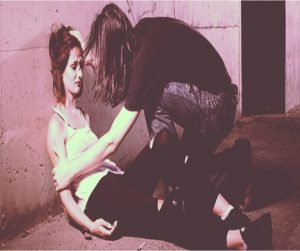Navigation:
- Heroin Intake and the High that Follows
- Developing Dependence
- What Happens When You Overdose on Heroin?
Heroin Intake and the High that Follows
 Heroin is taken recreationally by people who want to get high. They will smoke, ingest, or even inject the drug. Injecting heroin into the bloodstream creates a more intense high faster. The drug then activates certain receptors in the brain called neurotransmitters. Heroin-filled blood will circulate the body, causing the user to feel good. But then it also affects other parts of the brain—the parts that are responsible for your breathing and heart rate. The person will experience an elevated heartbeat. Their mouth will go dry and then they’ll feel nauseous and dizzy. Users will sometimes vomit. To put it simply: heroin will make you feel good, and then the opposite happens.
Heroin is taken recreationally by people who want to get high. They will smoke, ingest, or even inject the drug. Injecting heroin into the bloodstream creates a more intense high faster. The drug then activates certain receptors in the brain called neurotransmitters. Heroin-filled blood will circulate the body, causing the user to feel good. But then it also affects other parts of the brain—the parts that are responsible for your breathing and heart rate. The person will experience an elevated heartbeat. Their mouth will go dry and then they’ll feel nauseous and dizzy. Users will sometimes vomit. To put it simply: heroin will make you feel good, and then the opposite happens.
Developing Dependence
Like we said earlier, heroin will get you addicted. This means you’ll keep taking the drug. And then eventually, your body will develop dependence. What happens is that the body adjusts to the constant presence of heroin, meaning you will experience withdrawal if you attempt to stop taking the drug. Withdrawal is an intense experience that can even become life-threatening for long-term abusers of heroin. Symptoms of withdrawal include nausea, vomiting, tremors, muscle pain, joint pain, stomach cramps, etc. In order to quit heroin safely, proper medical detox will be necessary.What Happens When You Overdose on Heroin?
The first thing that happens is that the person experiences breathing difficulties as they “forget” how to breathe. At this point, the body can no longer handle the amount of heroin, and so the respiratory system takes the strain. The heart will also start malfunctioning, causing irregular heartbeat, which is also known as arrhythmia. The heart becomes unable to pump the correct amount of blood to supply the other organs with enough oxygen. Ultimately, the body may shut down. [maxbutton id="2" ] The nervous system is affected the most. Opioids taken in large doses tend to disrupt the natural production of norepinephrine, which also works as a neurotransmitter. Pain sensations are blocked (this is typically why opioids are prescribed for pain relief), but the heart rate will also slow down, and the blood pressure will drop. During a heroin overdose, the lungs can also get excess fluid. This condition is called pulmonary edema. It may cause the person to choke to death. Heroin overdose can lead to death. If you see any symptoms like shallow breathing, losing consciousness, choking, vomiting, and slow pulse, seek medical assistance immediately. Heroin addiction is a serious problem that needs to be addressed properly before it even leads to something like an overdose. Look for an addiction treatment facility near you today.
The above blog post What Happens When You Overdose on Heroin? was originally published on Rehab Near Me
from
https://www.rehabnear.me/overdosing-on-heroin/

No comments:
Post a Comment